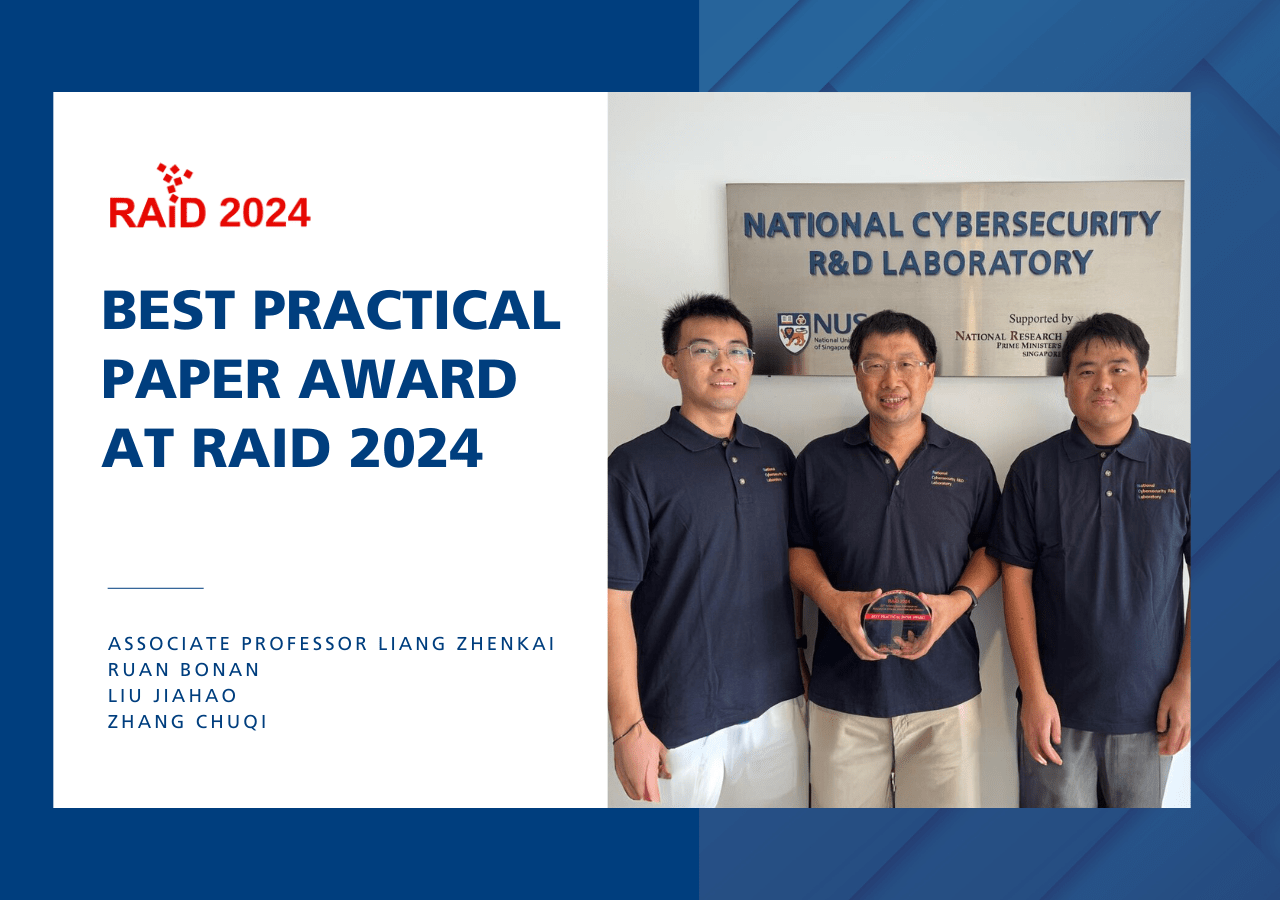Best Practical Paper Award at RAID 2024

Associate Professor Liang Zhenkai and his PhD students, Ruan Bonan, Liu Jiahao, and Zhang Chuqi, have been honoured with the prestigious Best Practical Paper Award at the RAID 2024 Conference for their groundbreaking work titled “KernJC: Automated Vulnerable Environment Generation for Linux Kernel Vulnerabilities.” The paper, which is part of a larger effort at the National Cybersecurity R&D Lab (NCL) at NUS, introduces a novel framework, KernJC, designed to automate the generation of vulnerable environments, offering a powerful tool that greatly improves the process of assessing Linux kernel vulnerabilities.
In cybersecurity, reproducing vulnerabilities for testing and analysis has always been a challenging and time-consuming task. KernJC aims to streamline this process by automating the environment creation required to accurately reflect specific Linux kernel vulnerabilities. The framework addresses two significant hurdles faced by researchers and cybersecurity professionals: the first is identifying the correct kernel versions that contain the vulnerabilities, and the second is configuring the often complex, non-default system settings necessary to trigger those vulnerabilities in practice.
KernJC’s innovation lies in its patch-based methodology, which works in tandem with a graph-based analysis to ensure that the proper vulnerable kernel versions are selected. It also automates the configuration of system settings, which can vary widely depending on the specific vulnerability being tested. This combination allows cybersecurity teams to replicate vulnerabilities in a much more efficient and accurate manner than ever before.
The impact of KernJC on the field of cybersecurity is profound. By automating these tasks, the framework significantly reduces the manual effort required to reproduce vulnerable environments, thus speeding up the security assessment process. This advancement is critical, as it enables security professionals to more efficiently evaluate the risks posed by Linux kernel vulnerabilities, ultimately helping to safeguard systems from potential threats.
Moreover, the ability to reliably recreate vulnerable environments with KernJC will help enhance the overall understanding of how these vulnerabilities operate, supporting the development of more effective mitigation strategies. This framework represents a major step forward in the continuous effort to improve Linux system security and defend against evolving cyber threats.
The recognition of Associate Professor Liang Zhenkai and his team at RAID 2024 highlights the real-world implications of their research, demonstrating how KernJC can play a vital role in the cybersecurity landscape by improving the ability to manage and address Linux kernel vulnerabilities.
